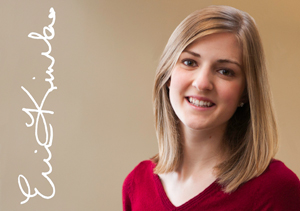 When I was growing up, my greatest fear was not under my bed, in my closet or at the front door — it was outside. Several large dogs had come to have free rein where I lived, and they terrorized all the neighborhood children. I had always been a dog lover, but a one-dog lover.
When I was growing up, my greatest fear was not under my bed, in my closet or at the front door — it was outside. Several large dogs had come to have free rein where I lived, and they terrorized all the neighborhood children. I had always been a dog lover, but a one-dog lover.
These outsiders terrified me. Our dog Ranger was an inside dog; if he saw an open door, he bolted. Because he was considerably lacking in the social skills that allowed him to get along well with strangers, we always went after him.
One day he did it again…bolted. Running after him, I saw before me my worst nightmare coming true: our hot-blooded terrier was headed straight into a dogfight.
I’m not sure what came over my 7-year-old self in that moment, but I ran full force after him into the fray. He was my dog. I loved him, and I was going to stop him, bodily if necessary.
That may be one of the more courageous things I did in my childhood, considering that the neighborhood dogs were my greatest fear. Fortunately the other dogs’ owner and my older sister soon intervened to tear the dogs apart, and everyone walked away amazingly unscathed.
Google defines courage as “the ability to do something that frightens one,” or “strength in the face of pain or grief.” At some point in our lives we have all felt something of fear, pain and grief. The believer no less than the unbeliever finds his life saturated by these things. It isn’t just soldiers and martyrs that need courage. We all need courage.
Some people think of courage as an absence of fear. Others feel that fear is what defines courage. Franklin D. Roosevelt said, “Courage is not the absence of fear, but rather the assessment that something else is more important than fear.” Almost every courageous action represents an internal war between our fears and our values. When what we value tips the scale, we find the choice to be courageous.
This principle was demonstrated several weeks ago during the Franklin Covey Time Management Seminar hosted at the University. During one of the sessions, Meagan Ingersoll, a junior dramatic production major in attendance, was asked if she would cross a beam extended between two skyscrapers at the 100th floor level for $100.
Laughing, she said no. “$1,000?” the man asked. She just as quickly replied, “No.” “$100,000?” he continued. “No,” came the now steady response. “What about a million?” he said. Ingersoll hesitated. “Maybe.” Laughter filled the room. “What if I held a gun to your little brother’s head?” he asked suddenly. “Would you do it?” Silence filled the room. The answer came quickly, with thought-provoking sincerity. “Yes.”
“We just found out what Meagan values,” the host said.
When we are facing what we fear in order to defend something we love, fear loses ground to a courage that is difficult to define or understand. Love is intangible, and yet it is one of the strongest forces to move our minds and emotions and, eventually, our actions.
So that leaves us with the question, what do we love? What are we willing to die for, and what are we willing to live for? We can assess that God is more important than our fear, but it is only the gift of God that enables us to love Him. We love him because He first loved us, and seeing His love will grow our love in response. We find our courage when we take our eyes off ourselves and look to Him.




















































